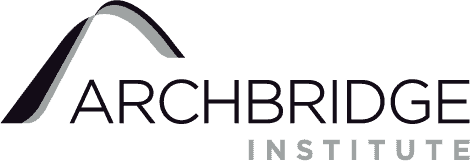This article was originally published in Newsweek.
As many of us gather this weekend with family and friends for the July 4 holiday, it’s worthwhile reflecting on American pride. Although Americans are divided in many ways, our shared positive national identity will help the United States remain a land of opportunity and a global leader of human progress. A recent report from the Archbridge Institute finds that Americans who are proud of their national identity are dramatically more optimistic about the future of their nation and about making progress on national and global challenges such as racism, poverty, political polarization, and climate change. Other evidence shows that patriotism increases social trust, voluntary association, and personal well-being.
Unfortunately, over the last couple of decades, American national pride has been in decline. Gallup reports that around 90 percent of Americans were very or extremely proud to be American 20 years ago, but that number is around 70 percent today. While the reasons for this decline are many, our new survey suggests that higher education is contributing to the problem.
We recently conducted a national survey of 2,000 students representing 130 colleges and universities across the United States. We found that only 56 percent of American college students are very or somewhat proud to be American. This is very low in comparison to other recent surveys of all U.S. adults that show most Americans across political, gender, racial, and income categories are proud to be American.
Moreover, when asked if their college classes and other academic activities have changed their view of the United States, the majority—57 percent—said yes. And among these students, over 70 percent indicated that college has changed their view of America to be more negative.
When asked how their college education has influenced their attitude about the future of the United States, only 24 percent reported it has made them more optimistic. Nearly half of students—46 percent—reported that college has made them more pessimistic about the future of the United States. The remaining 29 percent were neutral on the subject.
In other words, not only do colleges appear to be making many students feel more negative towards America, but they also appear to be making many students feel more pessimistic about America’s future.
Many students are also not learning about the progress that the United States has made on major issues related to human flourishing. When asked if, based on what they have learned in college so far, they think life has generally been getting better, worse, or hasn’t changed over the last 50 years on issues such as life expectancy, income per person, and level of education, only 42 percent responded that life has been getting better. The majority of students incorrectly believe that life has been either getting worse (44 percent) or hasn’t changed (14 percent) on these issues.
An appreciation of past progress may help students feel more grateful for the advantages they enjoy today. It may also make them prouder of their nation, more optimistic about its future, and more inclined to feel responsible for its continued success.
The optimistic mindset fostered by patriotism and an appreciation of the progress our nation has made isn’t just a feel-good sentiment. It inspires the actions that improve people’s lives. Research finds that when people are optimistic about the future, they are more goal-driven, resilient, entrepreneurial, innovative, cooperative, and engaged in civic life.
Tomorrow’s progress begins with today’s optimism.
We should be concerned that despite the fact that the majority of Americans are proud to be American, patriotism is in decline. As Americans, let’s take some time this weekend to appreciate the bonds we share and our shared goal of continuing the progress we have made as a country. This message is especially important for our colleges and universities.
American college and universities like to promote the idea that they are not just preparing students for their own careers but are also providing them with the type of educational experiences that will help them improve their communities and the world. If our institutions of higher education are serious about this goal, they should look for ways to encourage the type of patriotic and positive attitude that inspires people to work together to take on the big challenges of our time.
Clay Routledge is the Vice President of Research and Director of the Human Flourishing Lab at the Archbridge Institute. John Bitzan is the Menard Family Director of the Sheila and Robert Challey Institute for Global Innovation and Growth, North Dakota State University.
The views expressed in this article are the writer’s own.


